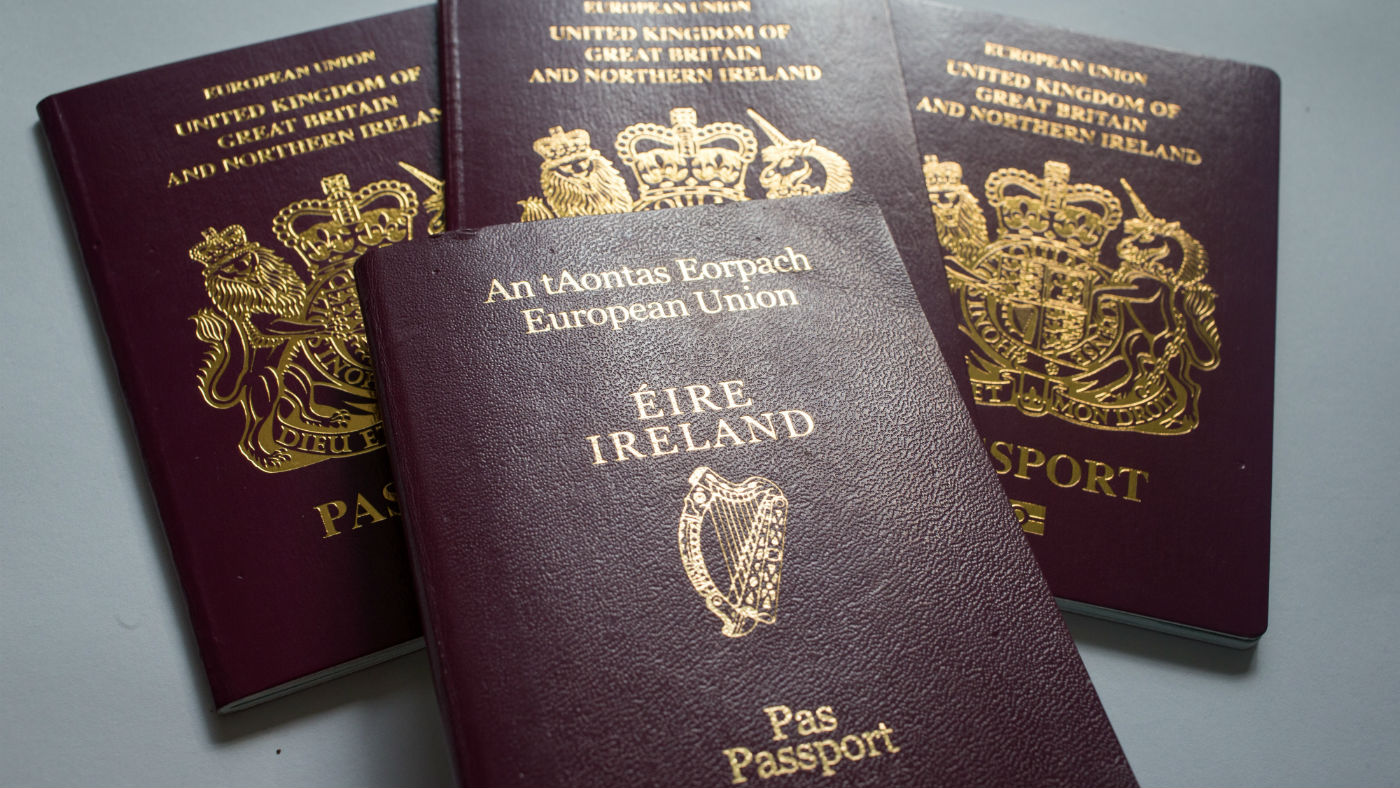May's 'settled status' will not apply to the Irish
Post-Brexit plan for EU nationals will not override Ireland Act, says government paper

A free daily email with the biggest news stories of the day – and the best features from TheWeek.com
You are now subscribed
Your newsletter sign-up was successful
Theresa May announced yesterday that EU nationals with five years’ or more of continuous residence in the UK will be able to apply for "settled status" post-Brexit, allowing them to live, work, study and claim benefits within the UK. The rights will be similar to the ones they enjoy now, and will be enshrined by some form of ID card.
According to the BBC, "those arriving after the cut-off point will be able to stay temporarily".
However, the proposed rules will not apply to Irish citizens, Dublin’s newstalk.com says.
The Week
Escape your echo chamber. Get the facts behind the news, plus analysis from multiple perspectives.

Sign up for The Week's Free Newsletters
From our morning news briefing to a weekly Good News Newsletter, get the best of The Week delivered directly to your inbox.
From our morning news briefing to a weekly Good News Newsletter, get the best of The Week delivered directly to your inbox.
The UK government's official document regarding the matter of settled status specifically declares that the new regulations on EU citizens will not override the Ireland Act. "Our proposals as set out below are without prejudice to Common Travel Area arrangements between the UK and Ireland, and the rights of British and Irish citizens in each others’ countries rooted in the Ireland Act 1949," it says.
"These arrangements reflect the long-standing social and economic ties between the UK and Ireland and pre-date both countries’ membership of the EU. As such, we want to protect the Common Travel Area arrangements, and Irish citizens residing in the UK will not need to apply for settled status to protect their entitlements."
According to BBC Reality Check, there are around 331,000 Irish nationals living in the UK at the time of the EU referendum, the second-largest group of migrants after the Polish.
A free daily email with the biggest news stories of the day – and the best features from TheWeek.com
-
 6 gorgeous homes in warm climes
6 gorgeous homes in warm climesFeature Featuring a Spanish Revival in Tucson and Richard Neutra-designed modernist home in Los Angeles
-
 Russia’s ‘cyborg’ spy pigeons
Russia’s ‘cyborg’ spy pigeonsUnder the Radar Moscow neurotech company with Kremlin-linked funding claims to implant neural chips in birds’ brains to control their flight, and create ‘bio-drones’
-
 Political cartoons for February 8
Political cartoons for February 8Cartoons Sunday’s political cartoons include going down the drain, American history, and more
-
 The high street: Britain’s next political battleground?
The high street: Britain’s next political battleground?In the Spotlight Mass closure of shops and influx of organised crime are fuelling voter anger, and offer an opening for Reform UK
-
 Biggest political break-ups and make-ups of 2025
Biggest political break-ups and make-ups of 2025The Explainer From Trump and Musk to the UK and the EU, Christmas wouldn’t be Christmas without a round-up of the year’s relationship drama
-
 ‘The menu’s other highlights smack of the surreal’
‘The menu’s other highlights smack of the surreal’Instant Opinion Opinion, comment and editorials of the day
-
 Is a Reform-Tory pact becoming more likely?
Is a Reform-Tory pact becoming more likely?Today’s Big Question Nigel Farage’s party is ahead in the polls but still falls well short of a Commons majority, while Conservatives are still losing MPs to Reform
-
 Meet Ireland’s new socialist president
Meet Ireland’s new socialist presidentIn the Spotlight Landslide victory of former barrister and ‘outsider’ Catherine Connolly could ‘mark a turning point’ in anti-establishment politics
-
 Believe it when AI see it: is this a deepfake turning point in politics?
Believe it when AI see it: is this a deepfake turning point in politics?Today’s Big Question AI ‘slopaganda’ is becoming a ‘feature’ of modern elections
-
 Taking the low road: why the SNP is still standing strong
Taking the low road: why the SNP is still standing strongTalking Point Party is on track for a fifth consecutive victory in May’s Holyrood election, despite controversies and plummeting support
-
 Is Britain turning into ‘Trump’s America’?
Is Britain turning into ‘Trump’s America’?Today’s Big Question Direction of UK politics reflects influence and funding from across the pond